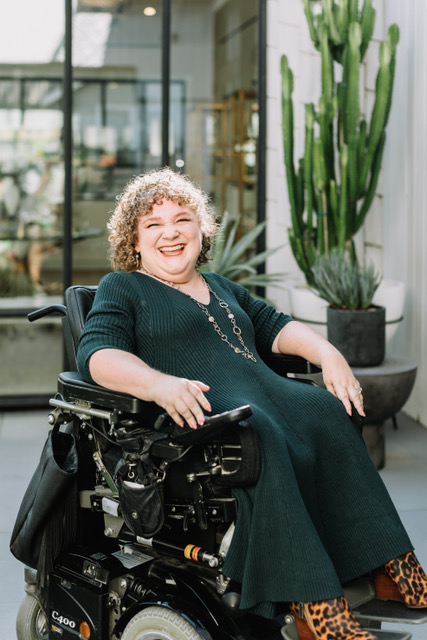Author and Muscular Dystrophy Association ambassador Mindy Henderson knows sometimes things suck, but it’s all about perspective.
By Evelyn Deal, Photo by Vanessa Todd
Wheelchair-bound Mindy Henderson seeks the beauty in life and shares it with others. Her podcast The Truth About Things That Suck creates great enthusiasm and encouragement for those going through something. Supported by scientific research from psychologists, Henderson’s book of the same name explores what is achievable within our psyche, challenging and inspiring readers to break through their presumed limitations. She motivates readers that have faced difficulties in the past and prepares them to tackle hardships in the future. Pre-sales of the book have already produced great acclaim from a few New York Times bestselling authors.
Henderson extends her wisdom to us in person through motivational speeches. She has spoken at Austin Woman’s 19th anniversary event, the University of Texas business and medical schools and companies like Cardinal Health, Twitter, Dell and Texas Women’s Business, just to name a few. She also serves as the editor-in-chief of the Muscular Dystrophy Association’s adaptive lifestyle magazine Quest. Her alluring use of realism and humor allows any listener to relate to her on any given level. She talks to you like she is your neighbor or friend, mixed with her perceptive intelligence and sound advice.
Mindset is huge.
I really want people to get a new perspective about the hard things in life. When times get tough, the emotional, knee-jerk reactions are so common. But there’s a different lens you can look through and a different way to approach your struggles that can bring about so much good. Mindset is huge. And I believe with all my heart that we can make difficult things so much harder or so much easier by how we look at challenges and how we approach them.
Disappointment is an opportunity.
Sometimes you don’t get what you want. But often that leads to something else so wonderful it didn’t even occur to you to wish for it.

Disability and illness can lead to compassion.
If we never knew or saw a person with a disability or battling a serious illness, how could we feel compassion? My disability allows me to see the kindness and compassion in people every single day. When you have such a visible example of adversity, I believe you often get to see the best in people because of how much they want to help.
Don’t let discrimination tear you down.
While I am not a victim, and I refuse to let others victimize me through something like discrimination, what I don’t believe in is combating hate or ignorance with more hate or ignorance. I take responsibility for myself and for how I am perceived in the world.
Create your own body image.
I don’t think I have met a single woman ever who doesn’t struggle with body image. The images we see daily of perfection in the movies, on TV and in magazines create unattainable aspirations. But when you have a disability that affects your physical form, achieving that norm of perfection becomes much less realistic, and potentially, much more toxic. Because the community of individuals with disabilities remains one of the most underrepresented groups in media and fashion, there are very few examples in our daily line of sight of beauty that look like us. I hope change continues to grow because we all need to see people that look like us.
Mindy Henderson’s book The Truth About Things That Suck (And How to Make Them Suck Less) is available to purchase on her official website.


